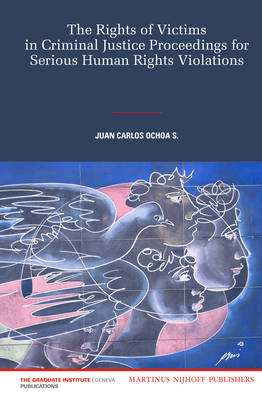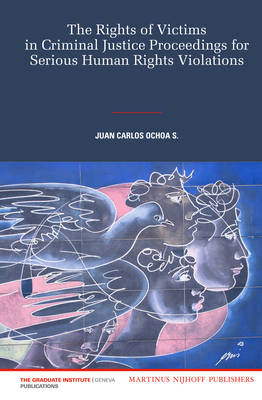
- Afhalen na 1 uur in een winkel met voorraad
- Gratis thuislevering in België vanaf € 30
- Ruim aanbod met 7 miljoen producten
- Afhalen na 1 uur in een winkel met voorraad
- Gratis thuislevering in België vanaf € 30
- Ruim aanbod met 7 miljoen producten
The Rights of Victims in Criminal Justice Proceedings for Serious Human Rights Violations
Juan Carlos Ochoa S
€ 358,95
+ 717 punten
Omschrijving
The Rights of Victims in Criminal Justice Proceedings for Serious Human Rights Violations addresses a question of critical importance to policy-makers, international lawyers, academics, and affected societies throughout the world: Should victims of serious human rights violations be granted under international law the rights of access to and participation in criminal proceedings before international, hybrid and domestic tribunals?
Juan Carlos Ochoa applies a thorough analysis of international and comparative domestic law and practice to this question, taking into account a host of international human rights instruments and case law, the theory, law and practice of international and hybrid criminal tribunals, the law and practice in several domestic jurisdictions, and many theoretical and empirical studies. After first determining the current state of, and emerging trends in, international law in this area, he argues that the lack of recognition of these rights under customary international law is inadequate, because access to and participation in criminal proceedings for victims of these infringements are based on several internationally recognised human rights and principles, contribute to the expressivist objectives of these procedures, and are consistent with the principles that inform the enforcement of criminal law in democratic States. On this basis, Ochoa convincingly suggests concrete reforms.
Juan Carlos Ochoa applies a thorough analysis of international and comparative domestic law and practice to this question, taking into account a host of international human rights instruments and case law, the theory, law and practice of international and hybrid criminal tribunals, the law and practice in several domestic jurisdictions, and many theoretical and empirical studies. After first determining the current state of, and emerging trends in, international law in this area, he argues that the lack of recognition of these rights under customary international law is inadequate, because access to and participation in criminal proceedings for victims of these infringements are based on several internationally recognised human rights and principles, contribute to the expressivist objectives of these procedures, and are consistent with the principles that inform the enforcement of criminal law in democratic States. On this basis, Ochoa convincingly suggests concrete reforms.
Specificaties
Betrokkenen
- Auteur(s):
- Uitgeverij:
Inhoud
- Aantal bladzijden:
- 336
- Taal:
- Engels
- Reeks:
- Reeksnummer:
- nr. 12
Eigenschappen
- Productcode (EAN):
- 9789004212152
- Verschijningsdatum:
- 6/02/2013
- Uitvoering:
- Hardcover
- Formaat:
- Genaaid
- Afmetingen:
- 160 mm x 236 mm
- Gewicht:
- 589 g

Alleen bij Standaard Boekhandel
+ 717 punten op je klantenkaart van Standaard Boekhandel
Beoordelingen
We publiceren alleen reviews die voldoen aan de voorwaarden voor reviews. Bekijk onze voorwaarden voor reviews.










